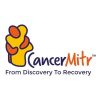- Home
Kissing Disease and its Link to Cancer – CancerMitr
They say that the sweetest thing for lips to experience is a sweet kiss. From the pages of the Kama Sutra to the big screen, kissing is a cherished way to express love and affection. However, what if this simple act of affection could be a doorway to potential health risks, including cancer? Intriguing, isn’t it?
Bookmark this blog to learn more about kissing disease and it’s link to cancer.
“>”>What is the kissing disease?
Epstein-Barr virus (EBV) is a type of herpes virus called herpes 4 virus that spreads through saliva and other body fluids. It causes a disease named mononucleosis in humans, also known as the kissing disease. It is because it is culturally regarded as notorious for spreading through lip kissing.
Although it spreads primarily through saliva, sharing drinks and utensils or being in close contact with someone infected can also spread the virus.
EBV tends to stay dormant in the human body for a long time until the signs and symptoms of the disease show up. Sometimes, even after the symptoms disappear, the virus tends to stay in the body in a dormant state for life. As many as 95% of adults experience an EBV infection in their lifetime.
“>”>What are the signs and symptoms of the kissing disease?
Here are the common signs and symptoms of the kissing disease;
- Fatigue: Persistent and severe tiredness is one of the hallmark symptoms.
- Fever: Often a high fever that can last for several days.
- Sore throat: This can be severe and sometimes mistaken for strep throat.
- Swollen lymph nodes: Particularly in the neck and armpits.
- Swollen tonsils: Can sometimes be covered with white patches.
- Headache: Mild to severe headaches are common.
- Skin rash: A rash can occur, especially if the patient has been treated with certain antibiotics.
- Soft, swollen spleen: This can cause discomfort or pain in the upper left abdomen.
- Liver involvement: This can result in mild liver function abnormalities and jaundice (yellowing of the skin and eyes) in some cases.
Less common symptoms can include body aches, nausea, loss of appetite, and night sweats. Symptoms usually appear four to six weeks after exposure to the virus and can last for several weeks or even months.
“>”>How is the kissing disease treated?
Infectious mononucleosis, commonly known as mono, is caused by the Epstein-Barr virus (EBV). While there is no specific antiviral treatment for EBV, the primary focus is on relieving symptoms and supporting the body’s recovery. Here are the main approaches to managing mono:
- Rest: Adequate rest is crucial to help the body fight the infection. Ensure plenty of sleep and minimize strenuous activities.
- Hydration: Drinking plenty of fluids helps prevent dehydration, especially if the patient has a fever.
- Pain Relievers: Over-the-counter medications such as acetaminophen (Tylenol) or ibuprofen (Advil, Motrin) can help reduce fever and relieve pain.
- Throat Lozenges or Gargles: These can soothe a sore throat and provide some comfort.
- Avoiding Contact Sports: Since mono can cause the spleen to swell, it’s important to avoid activities that could lead to abdominal injury and potentially cause the spleen to rupture.
- Avoiding Alcohol: Alcohol should be avoided as it can further stress the liver, which may already be affected by the infection.
- Corticosteroids: In severe cases with significant swelling of the throat or tonsils, a doctor may prescribe corticosteroids to reduce inflammation.
- Antibiotics: These are not effective against viral infections like mono. However, if a secondary bacterial infection (like strep throat) develops, antibiotics may be prescribed.
Most people recover from mono without any long-term problems, but recovery can take several weeks to months.
“>”>What is the link between EBV and cancer?
The virus that causes the kissing disease, EBV, is incredibly common; most people will contract it at some point in their lives, often without severe symptoms. However, as mentioned in the above paragraph, the virus remains dormant in the body and can reactivate under certain conditions. And that it’s link to cancer come into play.
Several research papers have shown that EBV can contribute to the development of several types of cancer, particularly in individuals with compromised immune systems. Some cancers associated with EBV include:
- Nasopharyngeal Carcinoma: It is one of the most reported cancers amongst people with EBV. This cancer originates in the nasopharynx, located behind the nose and above the back of the throat. EBV is found in the cancer cells of nearly all individuals with nasopharyngeal carcinoma.
- Burkitt Lymphoma: A form of non-Hodgkin’s lymphoma, a type of blood cancer, Burkitt lymphoma is another cancer strongly associated with EBV. It predominantly affects children in certain parts of Africa, which has a rapid growth rate.
- Hodgkin Lymphoma: EBV is found in about 40% of Hodgkin lymphoma cases. This cancer affects the lymphatic system, which is part of the immune system.
- Gastric (Stomach) Cancer: Some gastric cancers have also been linked to EBV, although the connection is not as strong as with the other types of cancers mentioned.
The mechanism by which EBV contributes to cancer development is complex and not entirely understood. It involves a combination of genetic, environmental, and immunological factors. EBV can integrate into the DNA of host cells and potentially cause mutations that lead to uncontrolled cell growth, a hallmark of cancer.
Also read:It’s Important To Be Selfish When It Comes To Your Health & Cancer Prevention: Dr Aditi Godbole’s Advice To Women
“>How to reduce the risk of kissing disease? “>
As of now, there are no vaccines against HPV, though several researchers are working on a suitable vaccine that can prevent the disease. If EBV is as common as reported, then an infection is only inevitable.
While you can’t entirely avoid Epstein-Barr Virus (EBV), there are steps you can take to reduce your risk of infections and related complications.
Practicising monogamy and avoiding lipkiss with an individual with fever or any other symptoms can help. Practicing good hygiene by washing your hands regularly and avoiding the sharing of personal items like toothbrushes and eating utensils is essential. Boost your immune system by maintaining a healthy diet, exercising regularly, and getting enough sleep. Additionally, avoid close contact with infected individuals, especially if they are showing symptoms of mononucleosis. By following these precautions, you can help protect yourself from EBV.
Also read: Nutrition Unwrapped: Navigating the Junk Food Jungle with Nut Set Go
“>In conclusion, “>
Kissing is a natural and enjoyable part of human relationships, but being aware of the risks associated with the “kissing disease” and its potential link to cancer can help you take precautions. By understanding the hidden dangers of EBV and maintaining a healthy lifestyle, you can enjoy your affectionate moments with peace of mind.
Stay informed, stay safe, and keep sharing those sweet kisses responsibly!

